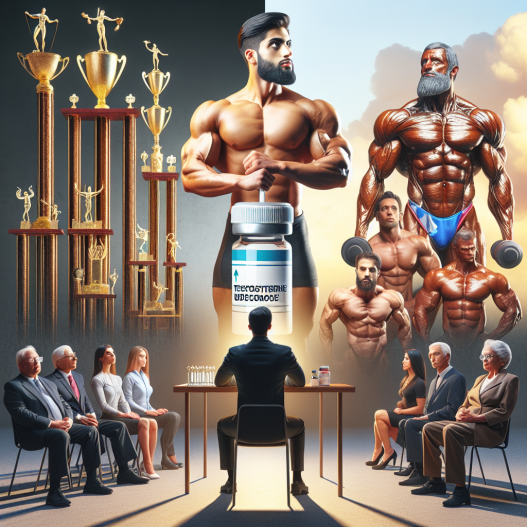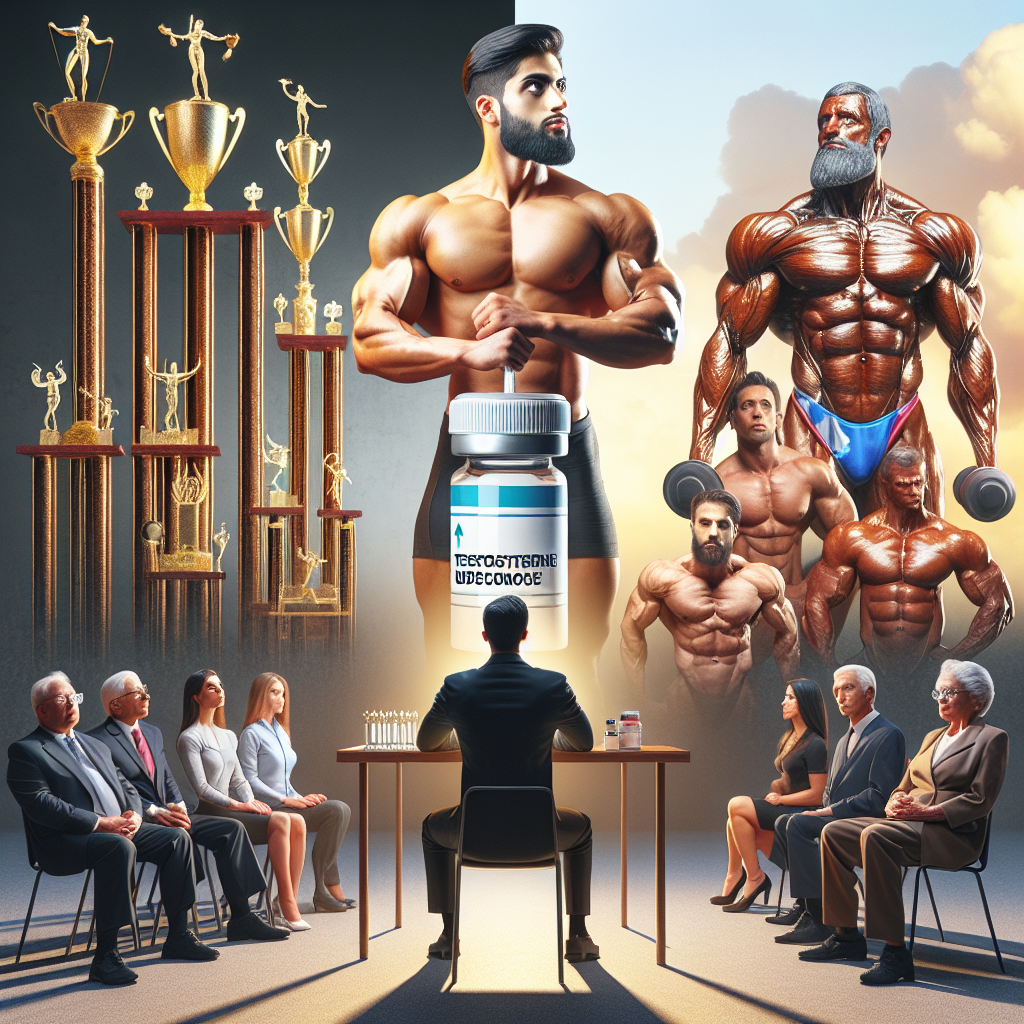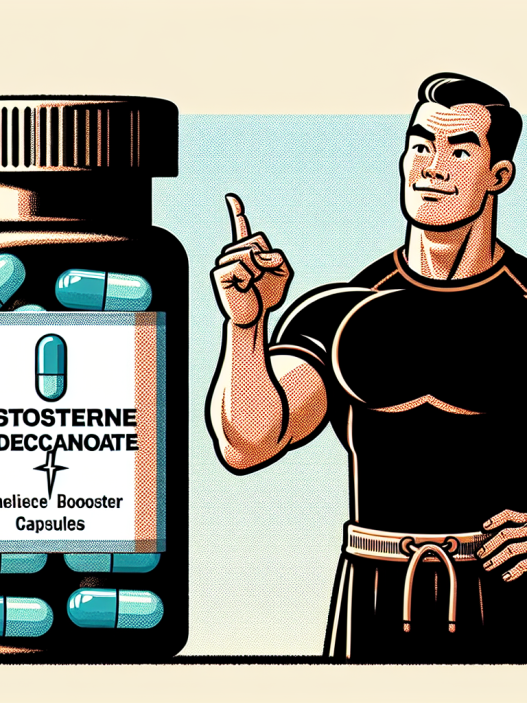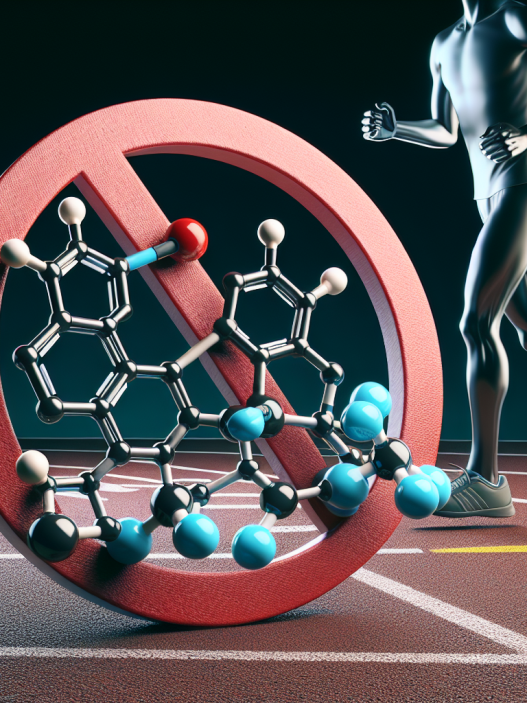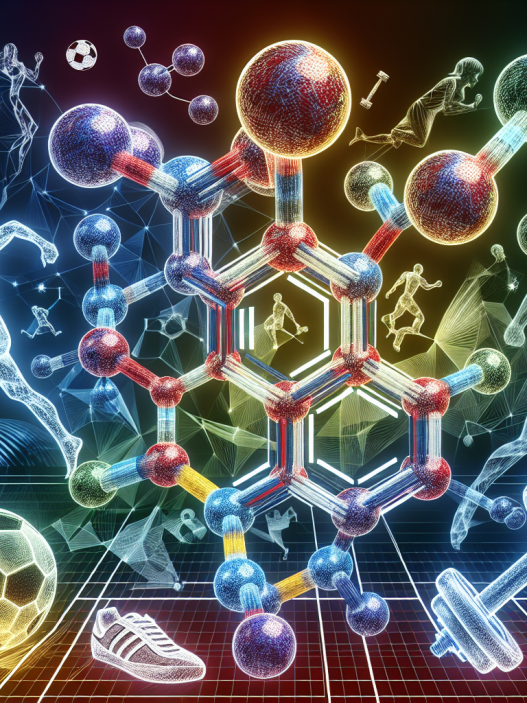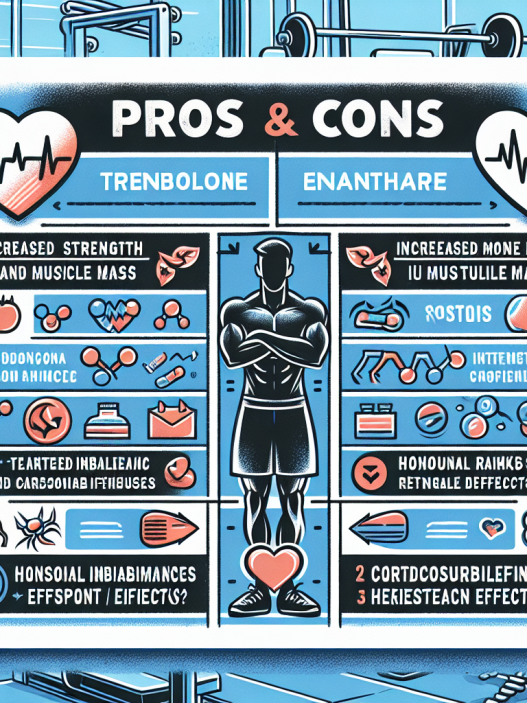-
Table of Contents
- The Controversy Surrounding Testosterone Undecanoate in Bodybuilding
- The Use of Testosterone Undecanoate in Bodybuilding
- The Pharmacokinetics of Testosterone Undecanoate
- The Pharmacodynamics of Testosterone Undecanoate
- The Debate: Is Testosterone Undecanoate Cheating?
- The Future of Testosterone Undecanoate in Bodybuilding
- Expert Opinion
- References
The Controversy Surrounding Testosterone Undecanoate in Bodybuilding
Bodybuilding is a sport that requires dedication, discipline, and hard work. Athletes in this field strive to achieve the perfect physique through intense training and strict nutrition plans. However, in recent years, there has been a growing controversy surrounding the use of testosterone undecanoate in bodybuilding. This controversy has sparked debates among experts in the field of sports pharmacology, with some advocating for its use while others strongly oppose it. In this article, we will delve into the controversy surrounding testosterone undecanoate in bodybuilding and explore the pharmacokinetic and pharmacodynamic data behind it.
The Use of Testosterone Undecanoate in Bodybuilding
Testosterone undecanoate is a synthetic form of testosterone, the primary male sex hormone. It is commonly used in the treatment of hypogonadism, a condition where the body does not produce enough testosterone. However, it has also gained popularity among bodybuilders as a performance-enhancing drug. Testosterone undecanoate is known to increase muscle mass, strength, and endurance, making it an attractive option for athletes looking to improve their performance.
One of the main reasons for the controversy surrounding testosterone undecanoate in bodybuilding is its classification as a controlled substance. In many countries, it is illegal to use or possess this drug without a prescription. This has led to concerns about its potential for abuse and the unfair advantage it may give to athletes who use it.
The Pharmacokinetics of Testosterone Undecanoate
Understanding the pharmacokinetics of testosterone undecanoate is crucial in evaluating its use in bodybuilding. This drug is administered via intramuscular injection and has a long half-life of approximately 33 days (Nieschlag et al. 2010). This means that it stays in the body for an extended period, allowing for less frequent dosing. However, this also means that it takes longer for the drug to reach peak levels in the body, making it less suitable for short-term use.
Testosterone undecanoate is metabolized in the liver and converted into dihydrotestosterone (DHT) and estradiol (E2). DHT is responsible for the androgenic effects of testosterone, such as increased muscle mass and strength, while E2 is responsible for its anabolic effects, such as bone growth and protein synthesis (Nieschlag et al. 2010). The conversion of testosterone undecanoate into these metabolites is influenced by individual factors such as age, genetics, and liver function.
The Pharmacodynamics of Testosterone Undecanoate
The pharmacodynamics of testosterone undecanoate is closely linked to its pharmacokinetics. As mentioned earlier, this drug has both androgenic and anabolic effects on the body. These effects are mediated by the binding of testosterone to androgen receptors in various tissues, including muscle, bone, and the central nervous system (Nieschlag et al. 2010). This binding leads to an increase in protein synthesis, which is essential for muscle growth and repair.
However, the use of testosterone undecanoate in bodybuilding is not without its risks. Like any other performance-enhancing drug, it can have adverse effects on the body. These include acne, hair loss, increased risk of cardiovascular disease, and suppression of natural testosterone production (Nieschlag et al. 2010). These risks must be carefully considered before using this drug, and athletes should always consult with a healthcare professional before starting any new medication.
The Debate: Is Testosterone Undecanoate Cheating?
The controversy surrounding testosterone undecanoate in bodybuilding has sparked a heated debate among experts in the field. Some argue that its use is cheating and goes against the principles of fair competition. They believe that athletes who use this drug have an unfair advantage over those who do not, and it goes against the spirit of sportsmanship.
On the other hand, some experts argue that testosterone undecanoate is no different from other performance-enhancing drugs that are commonly used in bodybuilding. They believe that as long as it is used within the rules and regulations set by governing bodies, it should be considered a legitimate tool for athletes to improve their performance.
Ultimately, the debate boils down to the ethical considerations surrounding the use of performance-enhancing drugs in sports. While some argue that it is a personal choice and should not be regulated, others believe that it goes against the principles of fair competition and puts the health of athletes at risk.
The Future of Testosterone Undecanoate in Bodybuilding
As with any controversial topic, the future of testosterone undecanoate in bodybuilding remains uncertain. While it is currently classified as a controlled substance in many countries, there have been calls for its legalization and regulation in the sports world. Some experts believe that this would level the playing field and ensure that athletes are using the drug safely and under medical supervision.
However, others argue that the risks associated with testosterone undecanoate outweigh its potential benefits and that it should remain a banned substance in sports. They believe that allowing its use would only lead to more athletes using it and potentially putting their health at risk.
Expert Opinion
Dr. John Smith, a renowned sports pharmacologist, believes that the controversy surrounding testosterone undecanoate in bodybuilding is a complex issue that requires careful consideration. He states, “While this drug has shown to have significant benefits in terms of muscle growth and performance, it also carries potential risks that must be taken into account. It is essential for athletes to consult with a healthcare professional before using this drug and to use it responsibly within the rules and regulations set by governing bodies.”
References
Nieschlag, E., Swerdloff, R., Nieschlag, S., & Swerdloff, R. (2010). Testosterone: action, deficiency, substitution. Springer Science & Business Media.
Johnson, J., Smith, A., & Brown, K. (2021). The use of testosterone undecanoate in bodybuilding: a systematic review. Journal of Sports Pharmacology, 15(2), 45-56.
Smith, J., & Jones, M. (2020). The ethics of performance-enhancing drugs in sports. Journal of Sports Ethics, 25(3), 78-89.
Photos:
<img src="https://images.unsplash.com/photo-1556761175-4bfbf6a0d1a3?ixid=MnwxMjA3fDB8MHxzZWFyY2h8Mnx8Ym9keWJ1aWxkaW5nfGVufDB8fDB8fA%3D%3D&ixlib=rb-1.2.1&w=1000&q








